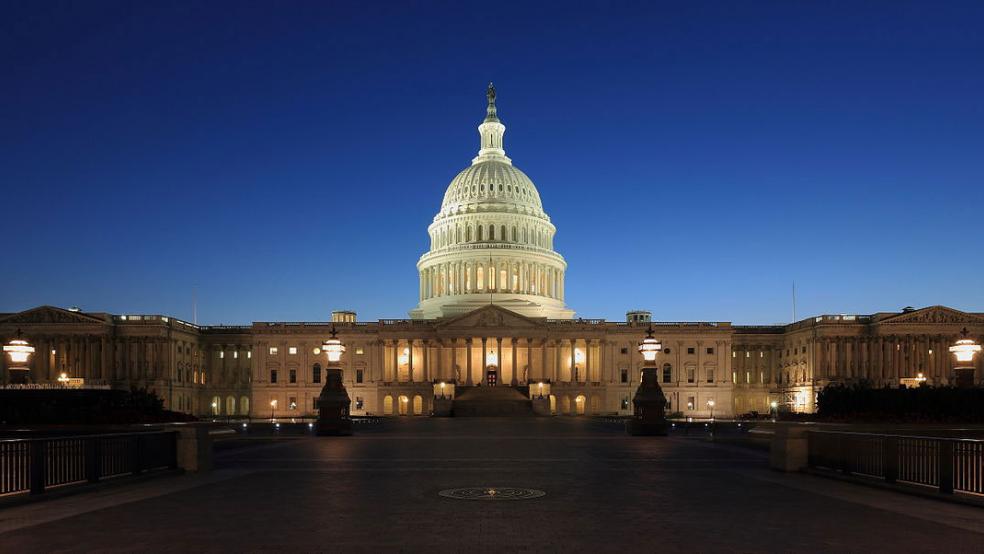If nothing else, Congressional Republicans should get points for confidence. Within hours of the spectacular collapse of the effort to repeal and replace the Affordable Care Act in the Senate, the House Budget Committee on Tuesday released an ambitious 2018 budget proposal. The plan would pour tens of billions of additional funding into the Pentagon while demanding huge spending cuts from virtually all other sectors of the government.
The plan would overhaul Medicare, creating a voucher-based system that lawmakers insist would run side-by-side with the traditional Medicare program. It also instructs the House Ways and Means Committee to begin work on the only project likely to be more complicated than health care reform: rewriting the entire U.S. tax code.
Related: Why Trump Can’t Sell Health Care Reform – and the Price He’ll Pay for It
Awkwardly, the budget assumes that the House version of ACA repeal, the American Health Care Act, passes the Senate and becomes law. With the collapse of the Senate’s Better Care Reconciliation Act on Monday night, however, that prospect is vanishingly unlikely. On Tuesday morning, Senate Majority Leader Mitch McConnell said that instead of voting on the BCRA, the Senate would vote on a straight repeal of the ACA with a two-year delay on its effective date.
President Trump, meanwhile, was calling on GOP lawmakers to simply let the existing system collapse. “Republicans should just REPEAL failing ObamaCare now & work on a new Healthcare Plan that will start from a clean slate. Dems will join in!” he tweeted Monday night, following up Tuesday morning with, “As I have always said, let ObamaCare fail and then come together and do a great healthcare plan. Stay tuned!”
The House budget plan claims that it would bring the federal budget into balance in a decade, actually producing a modest surplus by 2027. It would do that even as it adds hundreds of billions of dollars to defense spending over the course of a decade. In 2018 alone, the House budget proposes a $30 billion increase in the defense budget over the president’s budget request, for an 2018 Pentagon appropriation of $621.5 billion, which doesn’t include nearly $100 billion in additional spending related to the “Global War on Terror.”
To get there, the bill makes some truly heroic assumptions. Among other things, it assumes an average economic growth rate of 2.6 percent, a number that few economists view as plausible.
Related: There’s a Nasty Surprise Hidden in the Fine Print of the GOP Health Care Bill
In addition, it directs various Congressional committees to identify more than $200 billion in cuts to mandatory spending programs -- things like food stamps and other entitlement programs, moves that are likely to face resistance not just from Congressional Democrats but from many Republicans as well.
Budget Committee Chair Diane Black released a statement calling her party to action. “The status quo is unsustainable. A mounting national debt and lackluster economic growth will limit opportunity for people all across the country. But we don't have to accept this reality. We can move forward with an optimistic vision for the future and this budget is the first step in that process. This is the moment to get real results for the American people. The time for talking is over, now is the time for action.”
But Black has set a daunting task for a Congress that has so far posted few substantive legislative accomplishments despite unified Republican control of the House, Senate and White House.
The stakes are higher than average for a budget resolution, in fact, because the GOP leadership in both the House and Senate has made a tax reform bill almost as central to its legislative agenda as the repeal and replacement of the Affordable Care Act was. The budget proposal includes reconciliation instructions directing the Ways and Means Committee to take up deficit neutral tax reform.
Related: GOP Health Plan Hits Another Wall and McConnell Once Again Postpones a Vote
While both parties agree that the tax code is in dire need of repair -- the last major tax reform bill was more than 30 years ago -- the Republicans have made it plain that they intend to move forward without the Democrats if at all possible. While this would allow them to write a bill that addresses all of their concerns without making any nod to those of the opposing party, it also requires them to abide by the “budget reconciliation” process in the Senate, their only option for avoiding a Democratic filibuster.
That makes the GOP’s success in passing tax reform contingent, at a minimum, on the passage of a 2018 budget proposal that can include reconciliation instructions directing the relevant committees to write tax reform proposals.
Given the track record of the current Congress, the prospects of success for the House bill have to be viewed as slim at best.





